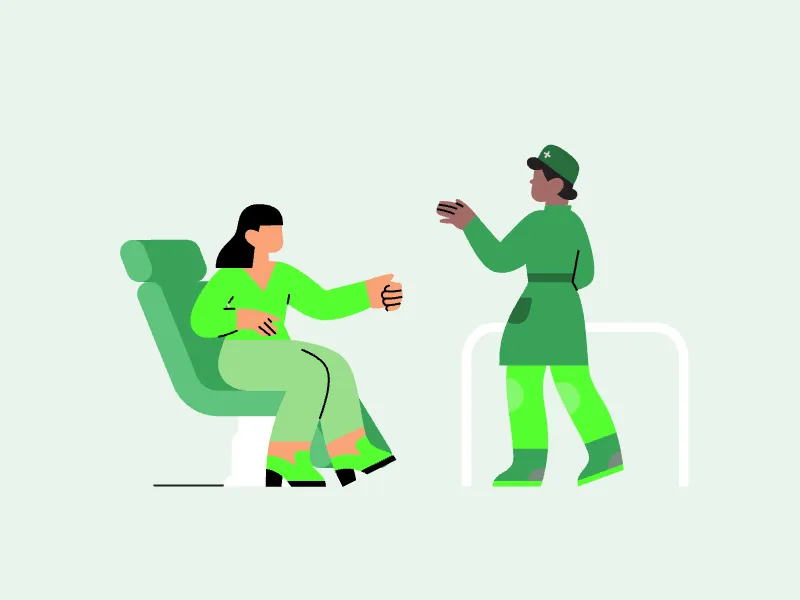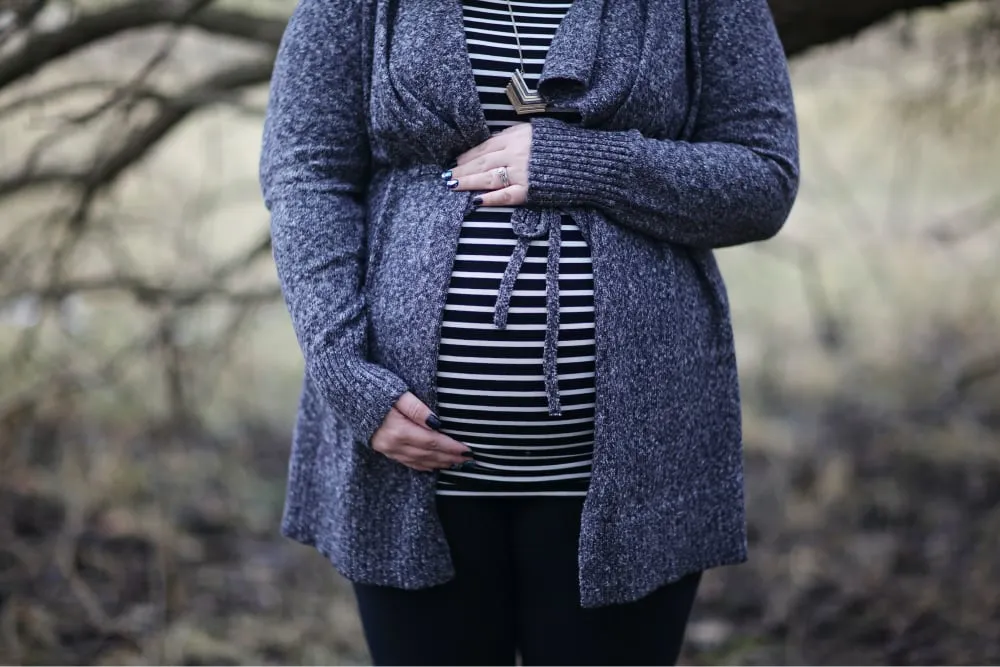What is postpartum depression?
Postpartum depression is a mental health condition that occurs in parents after giving birth. It’s common to feel empty or sad after childbirth, but these feelings typically subside within a few days. However, postpartum depression may be diagnosed when a parent has persistent feelings of hopelessness or depression that last for two weeks or more. (1)
Postpartum depression can negatively interfere with a gestational parent’s daily life and functioning. It may make them feel disconnected from their child, which may only compound these profound feelings of sadness and hopelessness. (1)
This condition is relatively common, affecting about 11% of parents. Contrary to popular belief, it can occur in both gestational parents and non-birthing parents. (1)
Symptoms
Being a new parent is an overwhelming and life-changing experience. It can be difficult to discern whether what you’re feeling is typical or if it may indicate a mental health disorder like postpartum depression. Some common symptoms include: (1)
- Crying frequently
- Feeling overwhelmed, hopeless, or sad
- Feeling moody or restless
- Eating too much or too little
- Sleeping too much or too little
- Experiencing profound fatigue
- Having no motivation
- Experiencing a lack of interest in previously enjoyed hobbies
- Experiencing problems focusing
- Experiencing memory issues
- Feeling guilty or worthless
- Feeling like a bad parent
- Withdrawing from loved ones
- Experiencing thoughts of hurting yourself or the baby
- Having a lack of interest in the baby or feeling as if the baby is someone else’s
If you experience any or all of these symptoms for more than two weeks, call your doctor immediately. You aren’t a bad parent and you deserve to receive compassionate treatment for your condition.
What is binge eating disorder?
Binge eating disorder is an eating disorder characterized by repeated episodes of uncontrollable eating in which a person eats a large amount of food in a relatively short period of time. To be diagnosed with binge eating disorder, a person must have a binging episode at least once a week for three months or more. (2)
People with binge eating disorder typically eat until they are uncomfortable and eat when they don’t feel hungry. They often feel depressed, guilty, or ashamed after a binge eating episode. (2)
Symptoms
Some common symptoms of binge eating disorder include: (2)
- Eating a lot of food in a short period
- Eating when you’re not hungry
- Eating alone out of embarrassment or shame
- Feeling guilty, disgusted, or depressed after binging
- Eating until you feel extremely uncomfortable
- Eating much faster than typical
Some people who have binge eating disorder may be living in a higher-weight body, although many people with this condition may be of average weight.
The link between postpartum depression and binge eating disorder
Postpartum depression can trigger binge eating disorder in someone who has a history of this condition, or it can be a risk factor for someone who is vulnerable to binge eating disorder. (2)
The reverse is also true: individuals with a history of binge eating disorder have an increased risk of developing postpartum depression. Research indicates this could be due to perfectionism, which is a common trait in people with binge eating disorder and can be a risk factor for postpartum depression. (1,3)
Perfectionism may be heightened in new parents, who are extremely concerned about making mistakes or doing things “right,” which is why those with a history of binge eating disorder may be at particular risk of postpartum depression. And on the other hand, someone with a high perfectionism trait who experiences postpartum depression may feel like they are failing their baby, which can lead to profound feelings of guilt or shame. These feelings could lead to binge eating episodes, which people may frequently use as a means of coping with unwanted emotions, such as anxiety, sadness, or stress. (2)
Regardless of the reasons for the connection between these two conditions, it’s important to understand that recovery is possible. While both postpartum depression and binge eating disorder can cause feelings of extreme shame and guilt, understand that there’s nothing to be ashamed of. These conditions are serious and can seriously affect your physical, mental, and emotional health. Although it may be scary, reaching out and asking for help can not only give you hope for recovery but also make you feel less alone in your struggle.
Treatment for binge eating disorder and postpartum depression
Eating disorders commonly co-occur with other mental health disorders like postpartum depression. Because of this, eating disorder treatment programs are well-equipped to provide integrated and comprehensive care that fully addresses both conditions.
Treatment for binge eating disorder and postpartum disorder may include: (1,2)
- Individual therapy
- Group counseling
- Family therapy
- Support groups
- Experiential therapy, such as art therapy or movement therapy
- Nutritional counseling
- Medical care, if needed
Additionally, medications may be prescribed to manage the symptoms of postpartum depression. These medications may include: (1)
- Antidepressants, which is taken orally every day
- Brexanolone, which is administered through an IV for 60 hours
- Esketamine, which is administered as a nasal spray at a doctor’s office
Eating disorder treatment is not a one-size-fits-all approach—rather, a treatment plan is tailored to meet each patient’s unique needs and address their specific challenges and goals. A quality treatment program will conduct a thorough biopsychosocial assessment and use this information to guide individualized treatment planning. The treatment team will also continue to evaluate the effectiveness of the plan throughout the program in order to make any adjustments if needed. Treatment can also occur virtually, for more flexibility in treatment, and recovery.
Another quality to look for in a treatment program is inclusiveness and culturally responsive treatment providers who understand and make room for a patient’s culture throughout the treatment process. Everyone is going to view and process their postpartum depression and binge eating disorder differently, and everyone is going to experience different biological, psychological, and social risk factors that led to the development of these conditions. A culturally responsive care team can make all the difference in providing you with a safe and comfortable space for recovery.


































